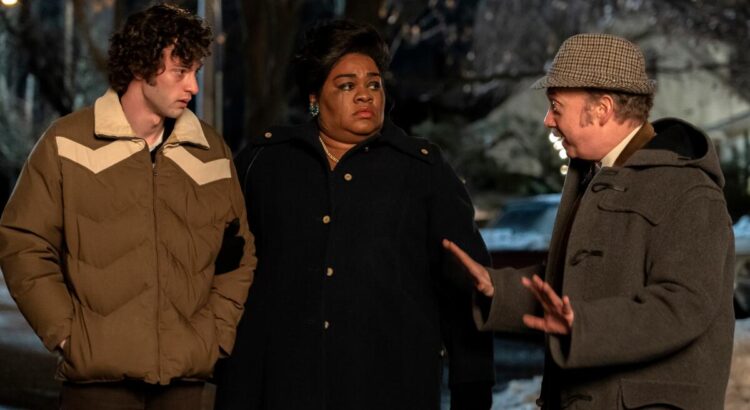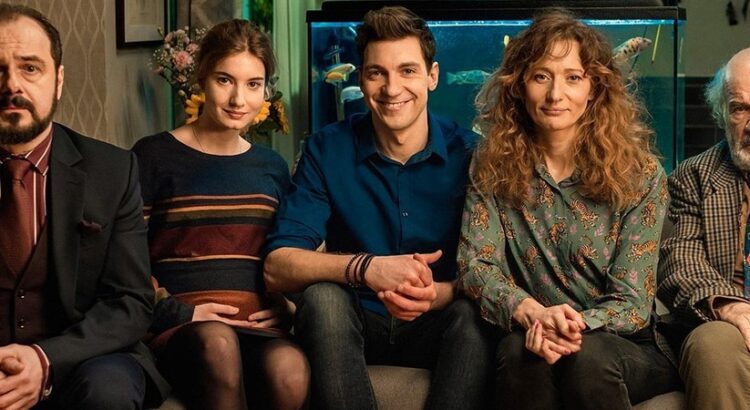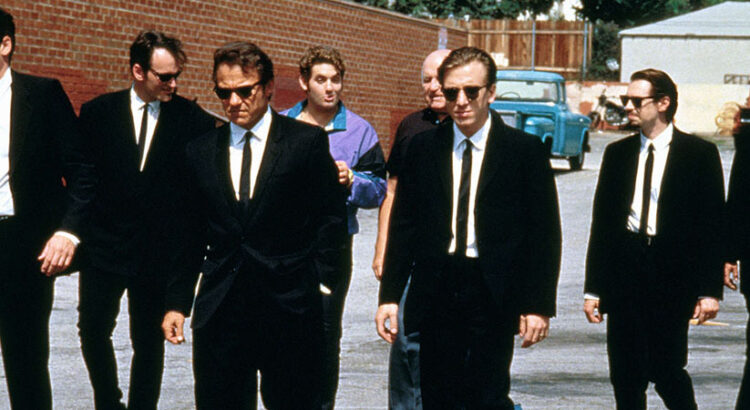There was no better way to spend my afternoon like catching the Sunday matinee of a film I have had on my mind ever since I saw a trailer for it this past summer – an early screening of Alexander Payne’s latest film “The Holdovers.” An apparently highly anticipated screening, as the Michigan Theater was practically swarmed with Ann Arbor-ites of all ages, passionately discussing the ins and outs of their virtuous presumptions. Afterwards, it was difficult to say if their expectations were met – but surely, smiles of perhaps off-duty professors and trend-outfitted undergrads had endured. And for me, as I left the theater, I left the film inside. There was no lingering impression that was tied to me, which is infrequently my experience after an Alexander Payne film, but there was an inexplicable warmth that carried through the theater. Ultimately, this overdrawn, meandering, melancholic comedy is made lovable, in part, by touching performances and tender moments, if frustratingly fleeting.
In the film’s opening, Payne situates us in the snowy outskirts of 1970s Massachusetts, our plot following a whiskey-drinking, fish-smelling, scrooge of a classics teacher, Paul Hunham (Paul Giamatti, “Billions,” “Sideways”) at Barton prep school, who is forced to watch over the students who have nowhere to go for Christmas. Soon, we see our main group of students disassemble – departing via parent-dispatched helicopter – except for an irreverent and awkward junior, Angus (Dominic Sessa.) Leaving Mr. Hunham, Angus, and the school cook, Mary (Da’Vine Joy Randolph,“High Fidelity,” “Only Murders in the Building.”) The three form a makeshift family, bonding through mealtime small talk, clandestine excursions, and ritualistic midnight-viewings of the “Newly Weds” game show. As their bond tightens, so begins the unraveling intricacies of their own stifled grief – and the solace they find in one another’s company.
Visually, the film brings a warm, saturated flare to a muted, wintery landscape that envelops the rigid collegiate architecture – and could be easily mistaken for the Law Quad, come January. And our eyes savor the composition of every long-held, establishing shot, each tempting the bound between effortless realism and dreamlike uniformity – a very Wes Anderson-esque framework. But this aesthetic isn’t contained in these few scenes, instead it remains a lingering presence in the air – just as tangible as the actors breathing it in. Embedded with true 1970s visual stylings, the film is riddled with covert film flickering, wide zoom outs and ins, making the viewer feel like they are in the middle of a “Columbo” episode. This stylistic undertaking of recreating that “70s look” in modern films is often its own character – giving into gimmickry and performativity. Yet Payne manages to distill the sweet oddities of the distinctive 1970s cinematography into an illusive, atmospheric mood.
And while this film’s clear aesthetic certainly builds an intimacy with viewers, the script doesn’t necessarily. “The Holdovers” at its core, is a film about the impermanence of youth and the grief that accompanies its passing – and this is where it shines – however briefly.
For example, we have Mr. Hunham who is at a standstill in his life; working for the school that he attended in his youth, and under the command of one of his previous students. And despite his hard exterior, he softens – sheepishly sharing and diminishing his dreams of writing a monograph. In a later scene, he and Angus run into a former classmate of his at Harvard. During their interaction, we see Mr. Hunham lie through his teeth about his employment and accomplishments, keying in the audience to what he dreamed his life could have been. Arguably, Mr. Hunham is simultaneously the most wretched, but also the most developed and sympathetic character in the film. This is, in part, ascribable to Paul Giamatti’s wonderfully evocative performance. Sincerely, the best role I have seen him in, thus far – and an undoubted Oscar-nominee. And speaking of Oscar worthy performances, it would be remiss not to discuss the force that is Da’Vine Joy Randolph’s evocative portrayal of Mary – whose warmth is palpable and was often the perpetrator of the laughter in the audience. In Mary’s case, she is grieving the loss of her son who had previously attended Barton, but enlisted in the military to save for college, which led to his death. However disjointed in the script, she frequently muses over the prospect of what could have been his future – what would have been the rest of his youth. This is, I think, a poignant commentary (and one that I am sure is relatable to many of us at Michigan) of you can go to the best schools in the world, but there will always be a barrier between opportunities if you are at a financial disadvantage.
Lastly, we have Angus who has no shortage of privilege – except when it comes to his familial relationships. In the film, he is ostensibly abandoned by his mother who decides to spend the holidays with her new husband, and pays him off as a desultory apology. Meanwhile, Angus’s biological father is in a mental hospital, suffering from (herein lies a plot shortcoming) maybe schizophrenia and early onset dementia? This is explained at the end, quite haphazardly. Nonetheless, this leaves Angus with a fractured household – one that he tries desperately to revive and derive affection from throughout the film. With that being said, Angus has the propensity to be highly childish, but he is often stifled from doing so as he internally reckons with his neglect, and the imposed independence that is required with no parental guidance. One of my favorite scenes from the film is when Angus becomes captivated by a snowglobe. Perhaps insignificant at first glance, but I believe this scene shows his longing for the sanctity of childhood – a childhood which is quite literally trapped within an object that is unable to be revisited – but only looked upon with admiration. Though unspoken, Dominic Sessa’s subtleties are what makes his performance memorable. Fascinatingly, he was reportedly scouted from a nearby school’s theater department. That and his empty IMDB page give a naturalistic mystique to his performance. Yet, it wasn’t clear if he has the acclaimed, “it.” Great actor, yes, but he was lackluster in more emotionally demanding sections of the film. Although I won’t speak too soon, given the cultural trajectory of the general public flocking to lanky brunette men – I can imagine his future acting prospects are looking positive – if he chooses to forgo that path.
Come the ending of the film, I found myself reeling at why I felt completely disconnected and untouched by a story that I thoroughly enjoyed and characters that I deeply understood. I will admit that it remains unanswered still in my mind. Though my best effort at extracting this dissonance, ultimately boils down to the sheer unfocused execution of Payne’s excellent ideas. We can see all of our characters suffer and persevere internally, but rarely do they share moments of true, unadulterated connection between their greatest commonality: stolen youth. And when they do, it lasts no longer than a minute or two, being promptly interrupted by uncharacteristic dialogue, tangential storylines, or an abrupt shift in plot. Just one example of this is seen after a charming turned overwrought Christmas party, the trio heads back to the car, Angus and Mr. Hunham consoling a drunken, tear-stained Mary. Angus half-heartedly comforts Mary, in true teenage boy fashion, which elicits a maligning outburst from Mr. Hunham. Mary then quickly snaps out of her grief to scold Mr. Hunham, and then she is suddenly fine – the scene is never mentioned again. This fragmented narrative hinders a deeper emotional connection to the trio as a whole, leaving the audience yearning for more enduring moments of resonance.
And this element of the film is the catalyst for what would be an average runtime, to feel so extensive and interminable. In spite of this, our actors manage to sustain our engagement and investment in these characters through an amalgamation of clever one-liners, vulnerable confessionals, and unquestionably moving depictions of the beauty in unexpected companionship – however sporadically placed and decidedly short-lived. Altogether, Payne’s “The Holdovers” feels like a vivid, albeit voyeuristic glimpse into the heartfelt happenings of three strangers who form and rely on their newfound family. With vintage flair, Payne creates a spritely, if a little tedious holiday film that is sure to earn a spot on people’s shelves – even just to collect dust.
While this was an early screening, the wide release of “The Holdovers” is on November 10th, 2023.








